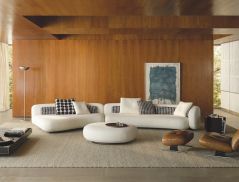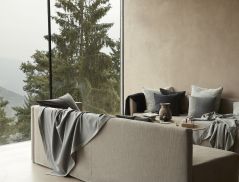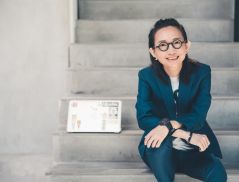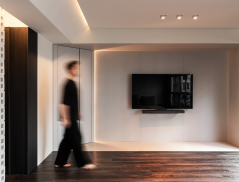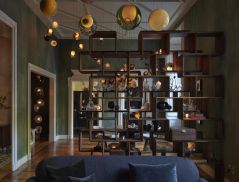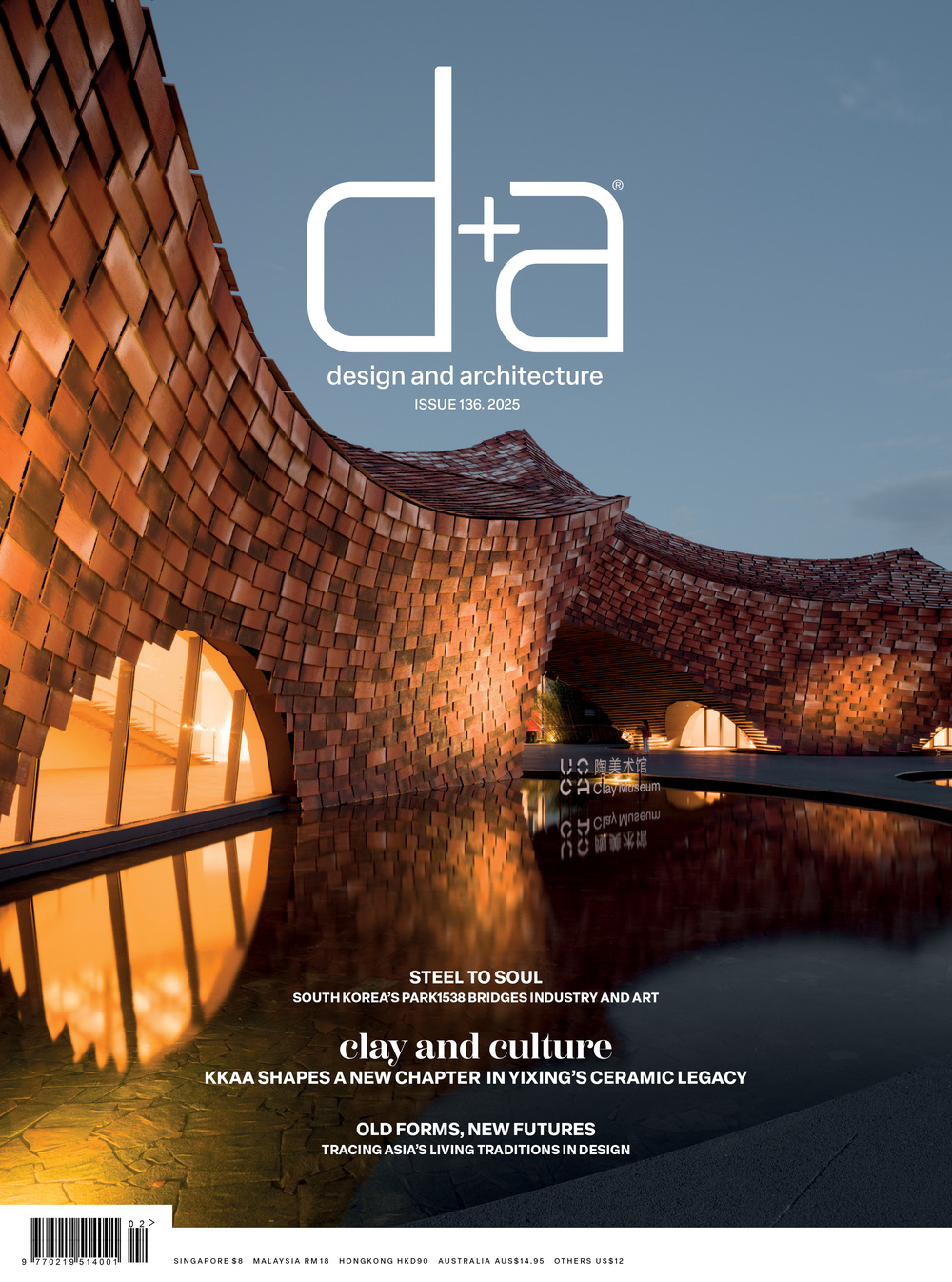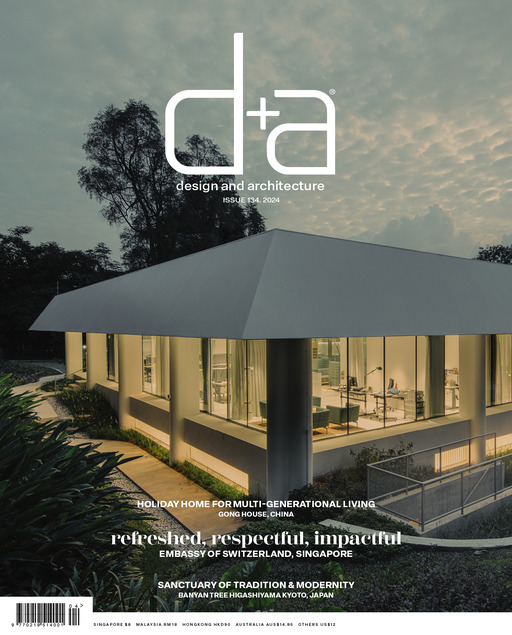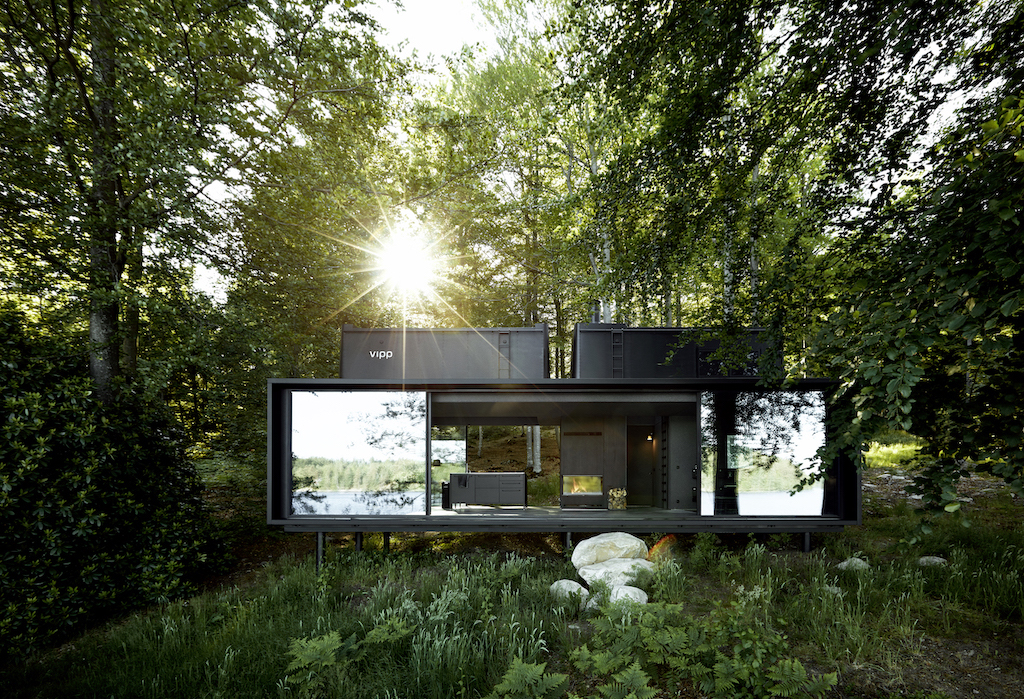
Vipp is a third-generation family-owned Danish company founded by metalsmith Holger Nielsen in 1939 in the small town of Randers. The core product is the pedal-controlled bin, that Nielson made for his wife Marie Axelsen who had wanted something practical and durable for her hairdressing salon.
When Holger passed away in 1992, his daughter Jette inherited the bin and metal workshop. Together with her children, Kasper and Sofie Egelund, they set out to transform the bin into a brand. When the bin was accepted into the permanent design and architecture collection at MoMA in New York, the family knew that they are on the right track.
Today, thanks to their dedication to product engineering and design, Vipp offers a whole spectrum of products from furniture, lighting and accessories to modular kitchens. They even have a hospitality business.
The guesthouses called Vipp Shelter started life as a prefab prototype cabin – the first 55 sqm first steel pod was built in Sweden in 2014. Today, they have been launched in places like Denmark, Norway and Italy. Their newest shelter is in Tasmania, Australia.
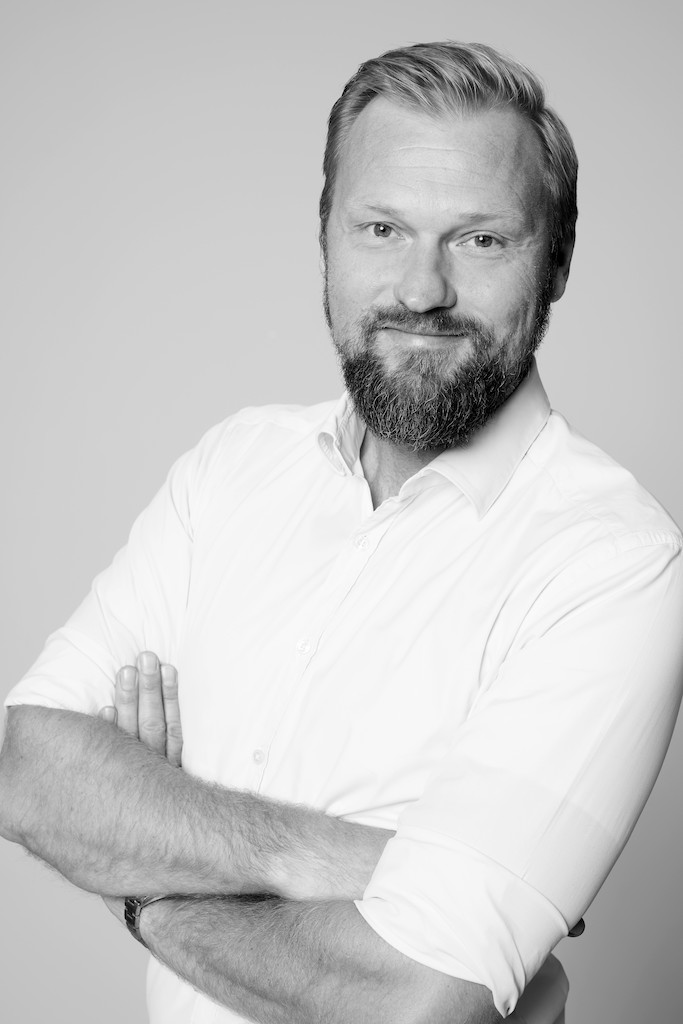

Vipp’s CEO Morten Woldum who joined the company 13 years ago as a product developer has a background in design and engineering. His first job assignment was to build a kitchen which has proven to be a success story. He shares more about the growth of the business and where it stands today.
Tell us about the company’s vision and its evolution from kitchens to guesthouses and beyond.
Kasper Egelund thought that it was a good idea to do a prefab house that’s so iconic that we can fit in our kitchens. So we went from doing a kitchen for the bin, to doing a house for the kitchen. And that’s where the shelter in Sweden came about in 2014.
When we did the shelter, we didn’t have much furniture. So from doing the guesthouses, we realised that furniture should be the next category. With furniture, you also need lighting. Our fifth category is outdoor furniture. We took some of our indoor products and treated them to withstand the weather, and then we launched that.
We are quite proud of the furniture range that we’ve managed to do in such a short time. Today, we have a full range including sofas, lounge chairs, coffee tables, lot of dining sets and three different series of chairs.
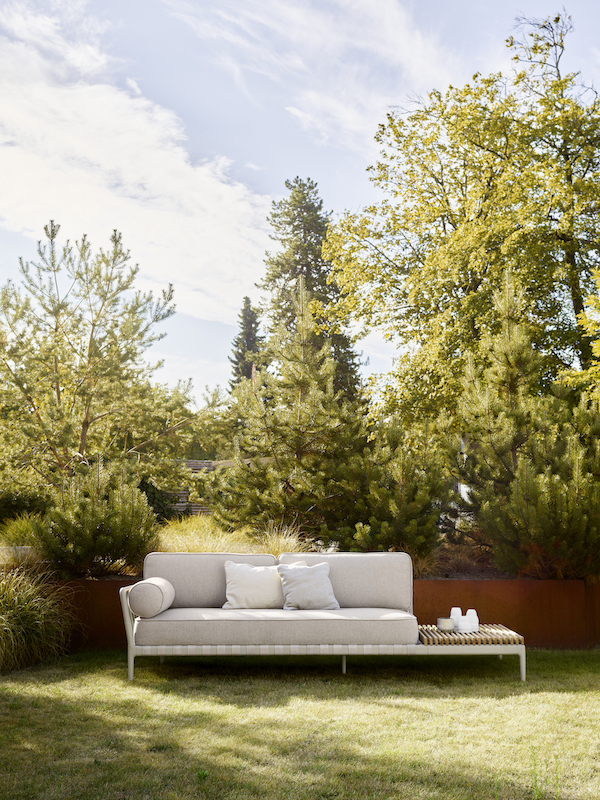

What do you envision Vipp’s portfolio growth to be in the next few years?
We are not that type of brand that just pushes out new products every year. We would like to have fewer but better products. We don’t want to over flood the market with products, but we want the right ones. And we want those products that we introduced to be inherited by our grandchildren. So we focus a lot more on the branding and the communication.
The guesthouse was initially made as a product that we would sell. But it proved to be very difficult because each country has different building certifications and requirements. And the whole idea about prefabbing [the shelter] in Europe and shipping it all over the world is
very costly and it takes a lot of time. It’s not good for the environment to move so much material. However when we launched it, we saw a demand right away for people who wanted to try it, rent it and live in it. We then realised – why not give the customers an opportunity to actually live in the Vipp guesthouse [and experience the kitchen and furniture products].
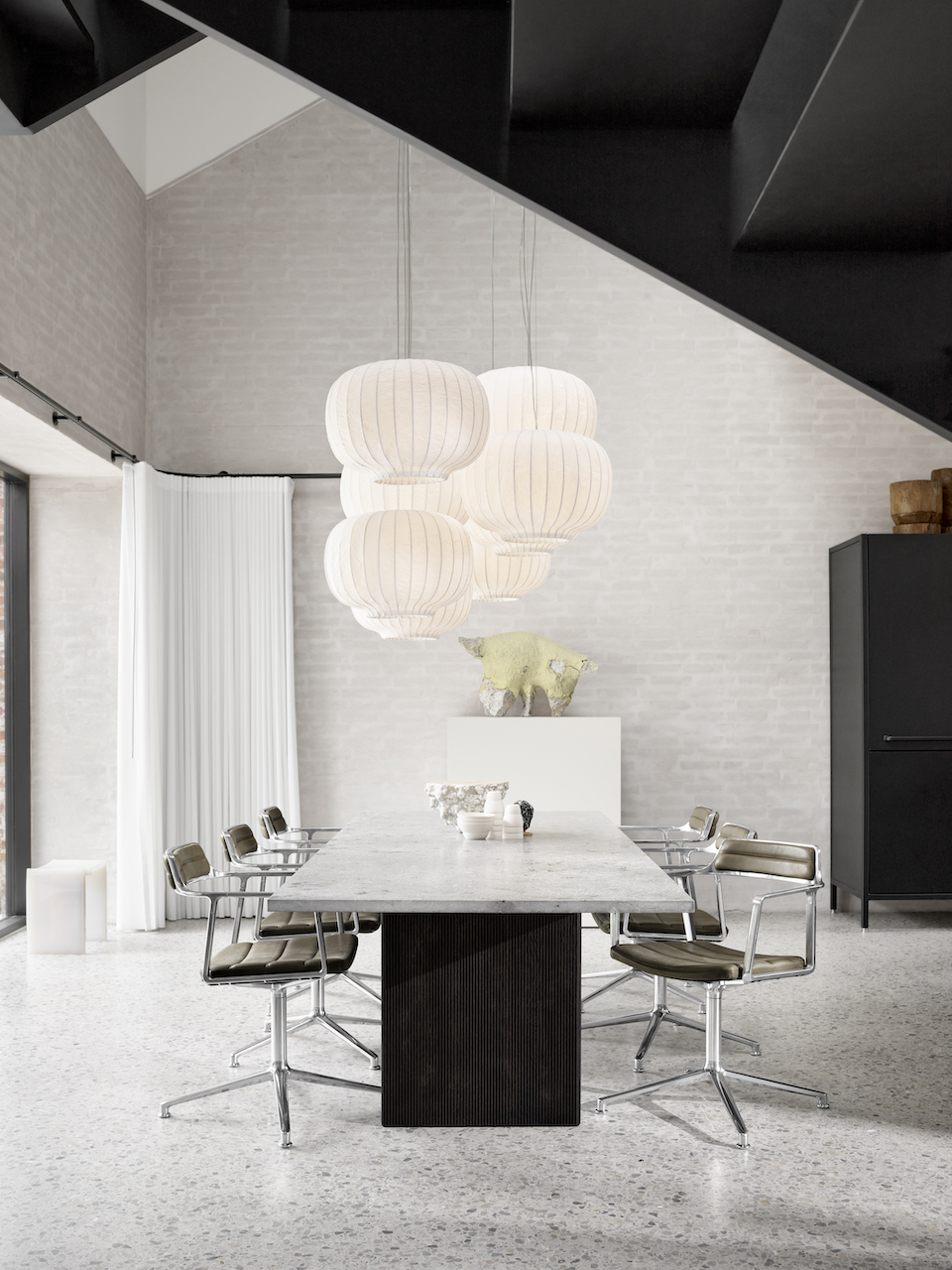

In terms of interior design, we’d like to get help from the best ones in the business. And that happens to be us – we have a whole team of interior designers.
Looking at growth rates, kitchens have been very good [business] for us in the last 12 years. We’ve done more than 1,000 kitchens, and we have 35 dealers worldwide. I think in 2024, if all the stars and planets are aligned, maybe we will introduce a new kitchen. We will also be introducing a lot of guesthouses.
One of our best-selling products is the swivel chair.It’s a very nice conference chair and dining chair. Some people would also like it to be more comfortable for the home office, so we’re making an evolved, optimised version of that.
Again, we don’t have too many options. We are very disciplined and we narrowed them down. For us it’s more about repeatability. When you do the same product over and over again, the quality becomes very good. And we’ve done millions of high quality bins. It lasts so long [the average is 32 years]. But if it breaks, we have spare parts and we can fix it. In terms of sustainability, imagine having a bin that can last for so many years.
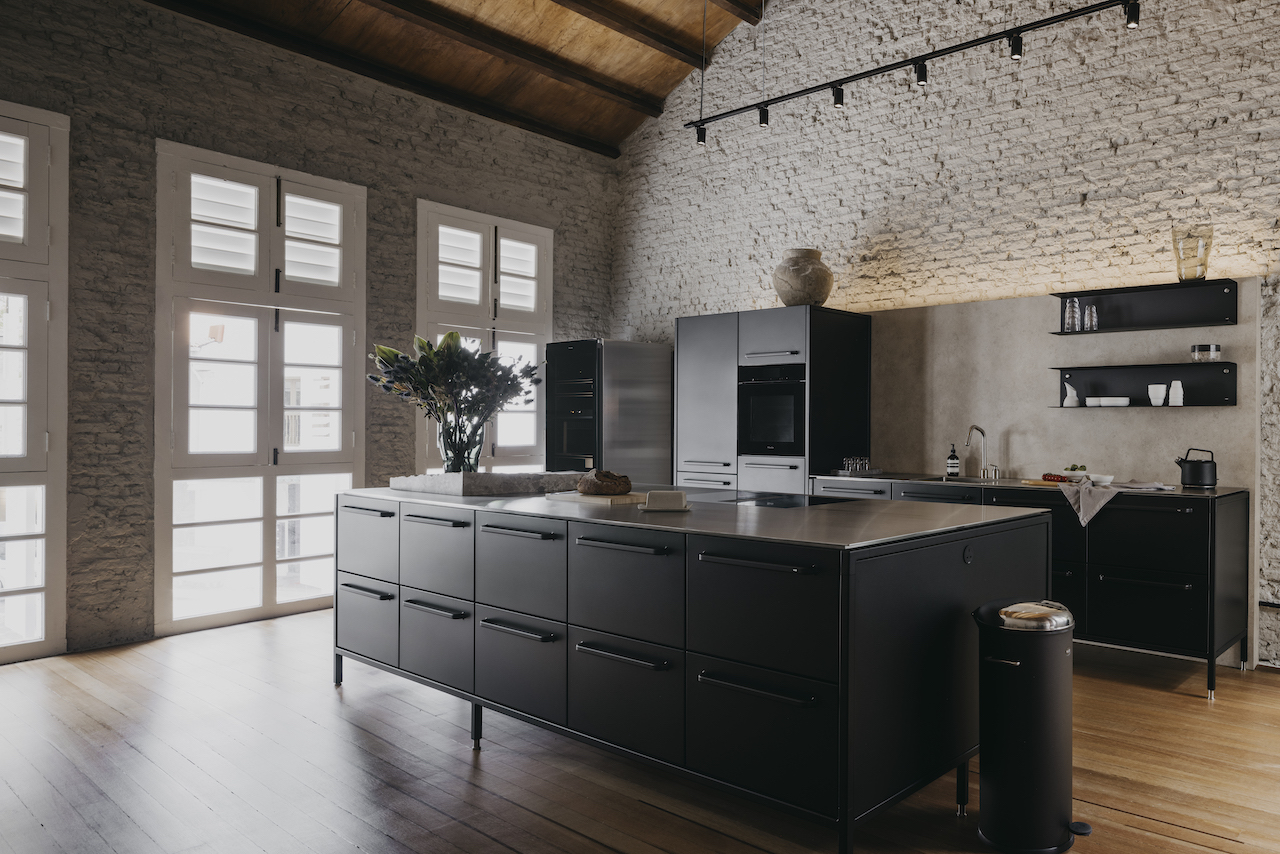 Vipp's kitchen at Duxton Road
Vipp's kitchen at Duxton Road
What should people know about Vipp’s strengths, quality and versatility for your kitchens?
Our kitchens are modular. If you move homes, you can bring it with you. The major strength is that it’s a kitchen that you will have for 30, 40 or 50 years, and it only gets better. And we have the spare parts [for the kitchen].
When we designed it, we asked professional chefs what the perfect kitchen is and how can we interpret that into a domestic version with a stainless steel worktop. We also raised it up so that it is freestanding and you can clean underneath.
And I think if you look at most professional kitchens, they’re not very big, because they need the space for paying guests. You need a practical setup where you are more efficient. And that’s why the modular kitchens are so perfect.
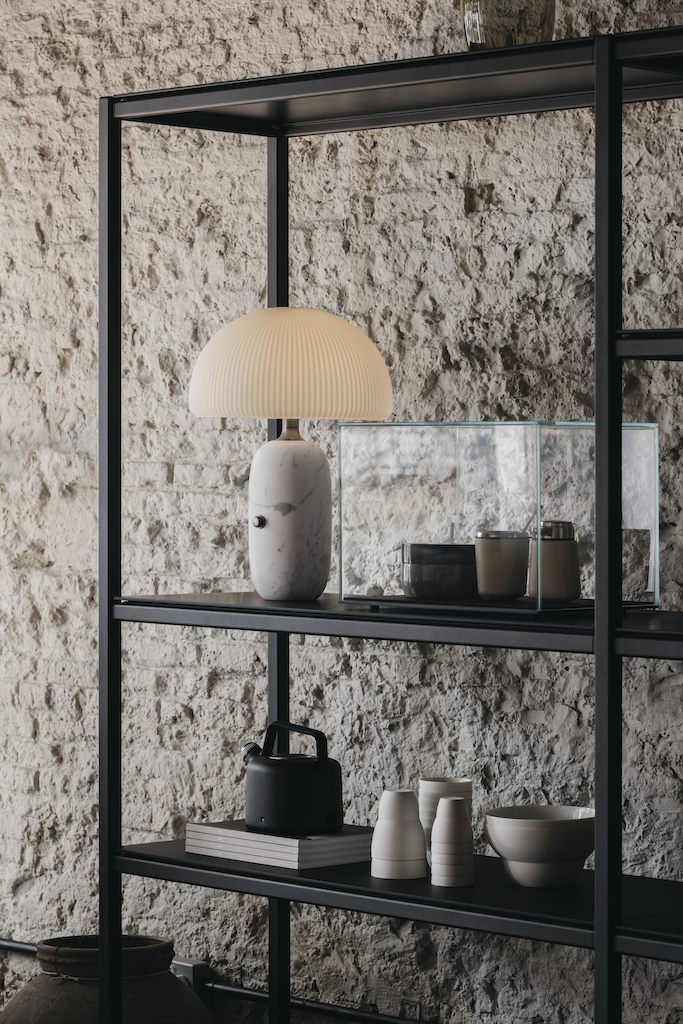

Could you share more about the durability and the quality of materials used for the furniture?
If you look at our lamps or our salt and pepper mills, everything is so meticulously designed. It’s done by engineers, craftsmen and designers. It’s not done by carpenters. We put in attention to detail. We spend years and years perfecting and testing [our products].
We always go for the best possible materials from Europe. We choose geometry and designs that will stand the test of time. When we look at textiles [for furniture], they have to be durable so they can last for those 30 to 40 years.
Note: The Habitatt is a subsidiary of Hyphenate Holdings that operates as the official distributor of Danish furniture brand Vipp in Singapore and Malaysia. Hyphenate Holdings is the parent company of KompacPlus.


 Share
Share
